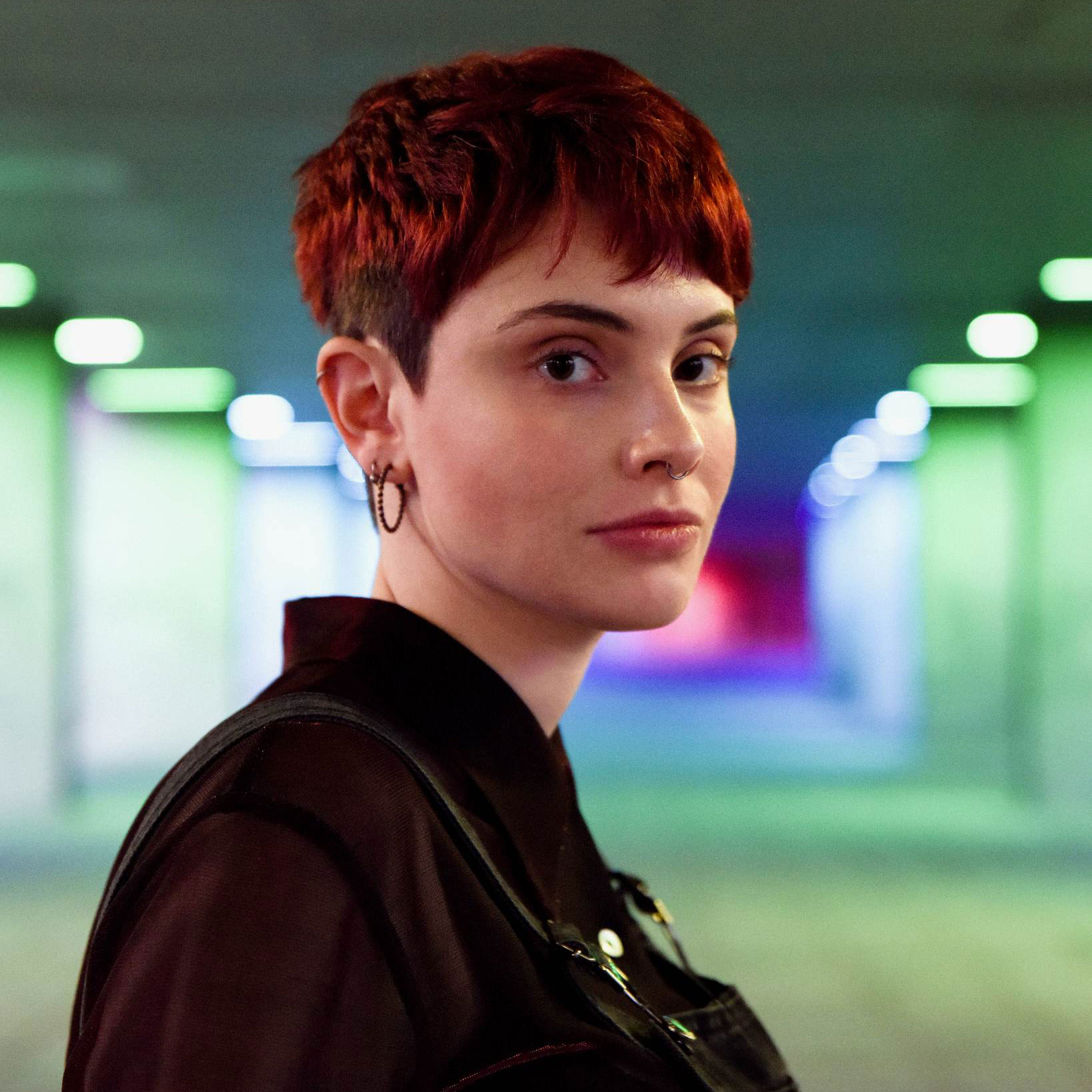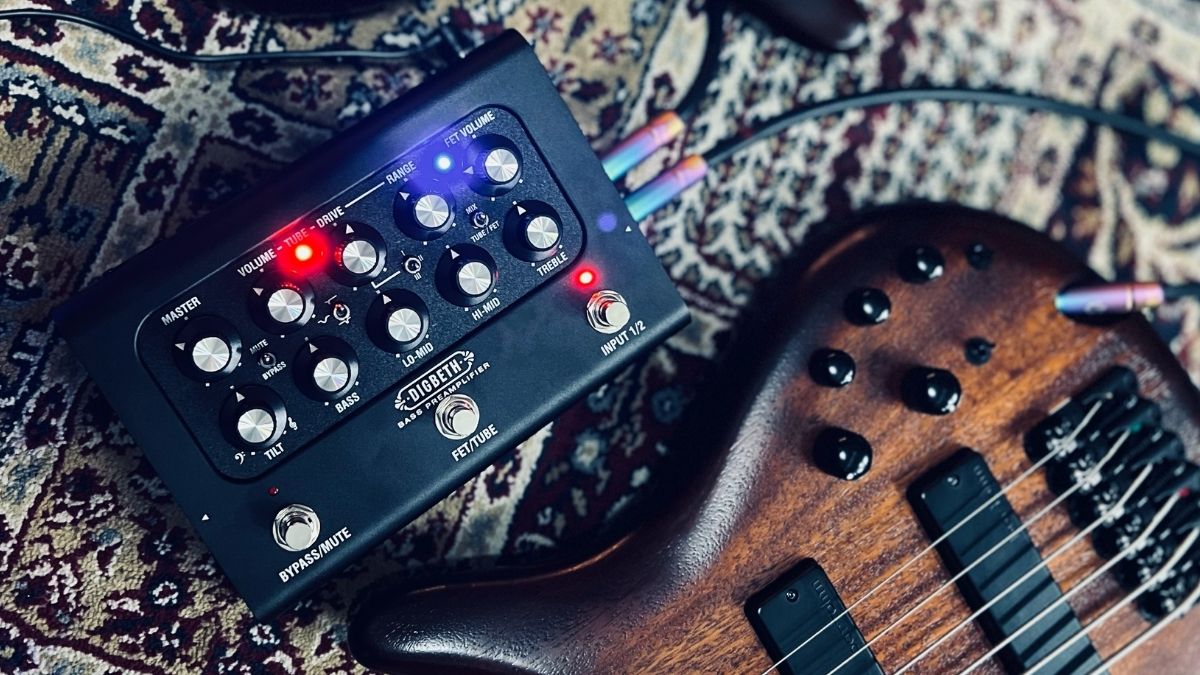“Chuck Berry’s manager said, ‘Nobody’s allowed to play any Chuck Berry songs.’ We started Roll Over Beethoven – he ran onstage and tried to stop us”: The Liverbirds played alongside the Beatles and the Rolling Stones – and paved the way for women in rock
From booting Chuck Berry’s manager off stage and proving John Lennon wrong, to touring Japan and blazing a screaming trail across Europe, The Liverbirds took Merseybeat beyond British shores, on their own terms
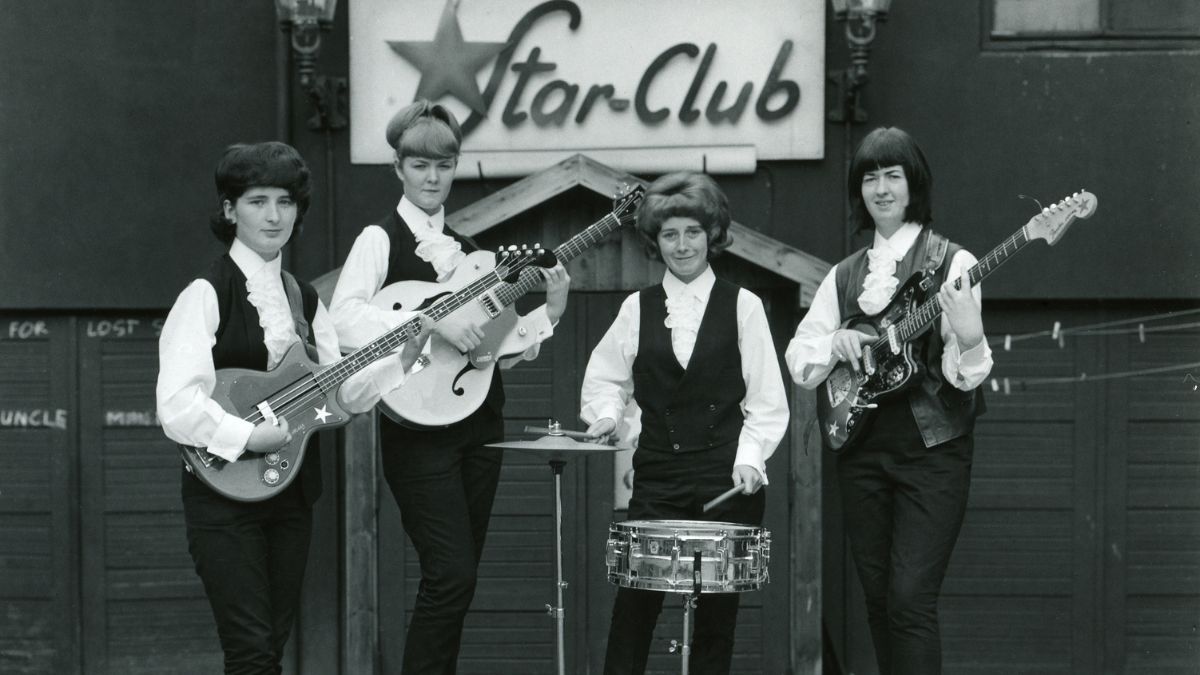
Mary McGlory's enthusiasm for playing bass has never faltered. It's been more than 60 years since the birth of her band The Liverbirds, a UK four-piece who would become peers of The Beatles, The Rolling Stones, and The Kinks but never attained the same worldwide commercial success.
Yet Valerie Gell (guitarist and vocalist), Pamela Birch (guitarist and vocalist), Mary McGlory (bassist), and Sylvia Saunders (drummer) are etched in history, as the Liverpool band paved the way for women in rock at a time when there weren’t many women playing in bands.
“We realized we were the very first in Europe. But that was what we wanted to be,” remarks McGlory. “And we wanted to show that girls can do it and it's not just the boys' world, guitars; it's female. It's male, female, everybody can do it.”
From booting Chuck Berry’s manager off stage to touring Japan and blazing a screaming trail across Europe, the band cemented their position as pioneers, all while spreading their own twist on Merseybeat beyond the British shores.
Apart from these successes, however, it’s their genuine friendship, enduring passion for their instruments, and the impact they had on a new generation of women in rock music that’s stuck in McGlory’s mind.
In fact, the two surviving members, McGlory, 78, and Saunders, 77, have just released a memoir, The Liverbirds: Our Life in Britain's First Female Rock 'n' Roll Band. The band and their lived experiences also inspired the Liverpool-based musical Girls Don't Play Guitars.
But the story of The Liverbirds doesn't end there. McGlory and Saunders, along with two actors from the musical, were recently in the studio, recording music for a brand-new Liverbirds album, set to be released later this year.
All the latest guitar news, interviews, lessons, reviews, deals and more, direct to your inbox!
We spoke to McGlory to get the lowdown on The Liverbirds' remarkable story, the bass gear she used throughout her career – and what really happened with John Lennon and Chuck Berry's manager…
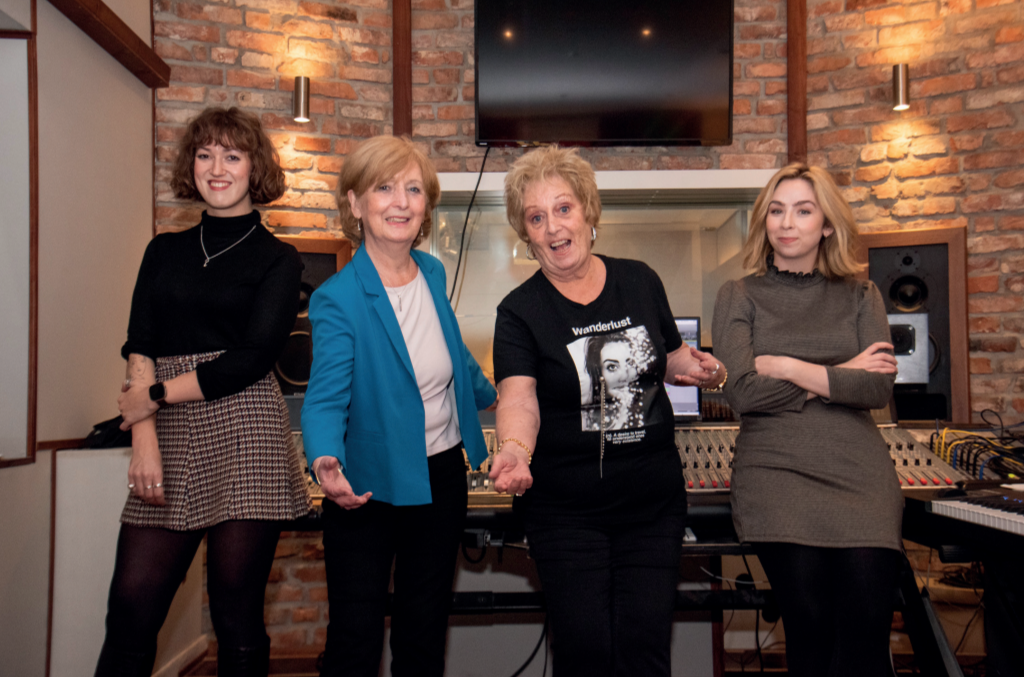
What attracted you to play bass?
“To be quite honest, when we got to the shop to buy the instruments, we hadn't even decided except that Valerie was definitely gonna play lead guitar. The rest of us hadn't really thought about what we wanted to play.
“But I'd seen The Beatles just before in The Cavern and we had a little chat with them. That was when John Lennon said, ‘Girls don't play guitars.’ And Paul McCartney said, ‘What a great idea.’ And I thought, well, I'll just play bass because that's what Paul McCartney played.”
But I'd seen The Beatles just before in The Cavern and we had a little chat with them. That was when John Lennon said, ‘Girls don't play guitars’
So once you decided to play bass, where did you buy your first bass from, and what was it?
“It was 1962. And it was in the shop called Hessy's, where nearly all the groups bought instruments, including The Beatles. When we went, we hadn't even started playing and so we weren't earning any money except from our weekly jobs that we had. So it had to be a price thing as well. And the man in the shop, he was a very well-known person in Liverpool, he suggested I buy the red Framus bass, first of all, because it wasn't that expensive and because it wasn't that heavy, either.”
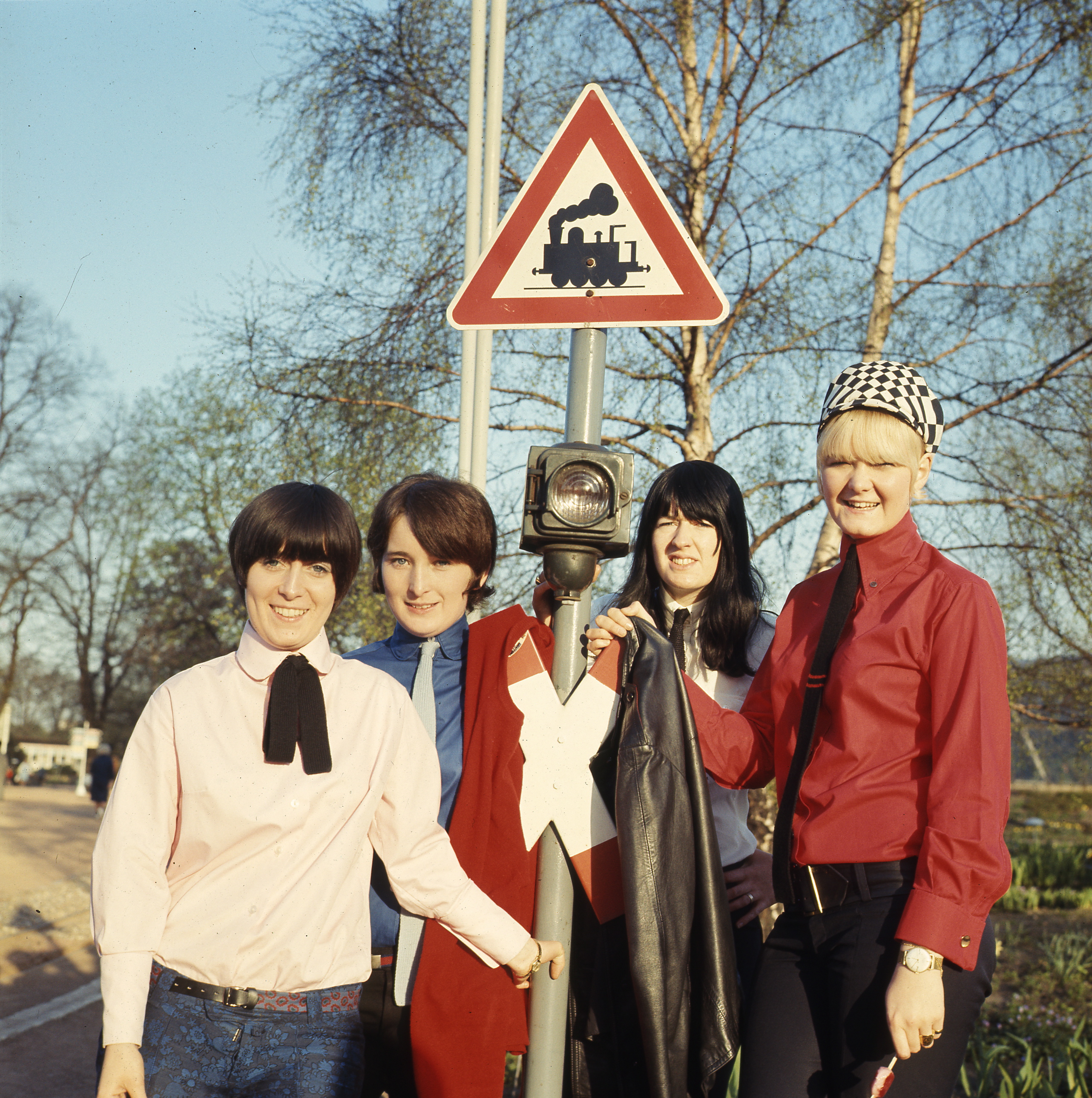
And how did you four decide to start a band?
“It was after seeing The Beatles at The Cavern. And really, the first time I had the idea of starting a group was when I was in The Cavern with my cousins, and we thought we would start a group.
“Valerie and Sylvia, they were these girls thinking about starting a group. And they got in touch with me, and Valerie could play. She was a really good guitarist. When she realized that I couldn't play she said, ‘It doesn't matter, Mary – I'll teach you.' Sylvia was already gonna play the drums. And we needed Pam. She came later. And that was when we finally settled as The Liverbirds and knew that this was the right lineup.”
Where was your first gig? Was it in Liverpool?
“It was in Liverpool. I mean, first of all, I was very religious at the time and had good connections to our parish priest. And he said, ‘You know, girls, before you start playing, if you'd like to just play to a little audience, so you know what it's like.’
“And so our very first gig was playing for the old-age pensioners. And, of course, at the time, we still were only instrumental, and they were all clapping and shouting. And when we came off this very, very small stage, we said to each other, ‘I bet you they didn't have their hearing aids.’ So that was the very first gig.
“And then we had one in Chester, which is quite close to Liverpool because we had really promised to do our first [proper] gig [in Liverpool] at The Cavern because we knew Bob Wooler [The Cavern’s compere]. To do The Cavern as your very first real gig might be a bit nerve-racking. So we did a small club in Chester first, and that went very well. And then the next gig was The Cavern.”
You played The Cavern Club on your third show? You went big from the get-go!
“Yeah, yeah, we did. And of course, we were the very first all-female band to play at The Cavern. And we didn't know how the female audience was gonna react to us because we thought maybe they might think, ‘Oh my gosh, they're gonna take our boyfriends away from us,’ or, you know, the groupies might suppose, ‘Oh, they're gonna get the first choice of the bands.’ And then we started playing, the girls started screaming just the way they did for the boys.”
Even groups like The Searchers, or Gerry and the Pacemakers, the groups that were very big at the time, they all said, ‘Listen, girls, if you need any help, just get in touch with us’
Your interaction with John Lennon is widely publicized. How did comments like ‘girls don't play guitars’ push you to become a professional band?
“It encouraged us more than it disheartened us. And all the other groups, they were all fantastic. I mean, even groups like The Searchers, or Gerry and the Pacemakers, the groups that were very big at the time, they all said, ‘Listen, girls, if you need any help, just get in touch with us.’ And some of the groups really did come, one or two members of them to some of our rehearsals. So there was absolutely no problem there at all.”
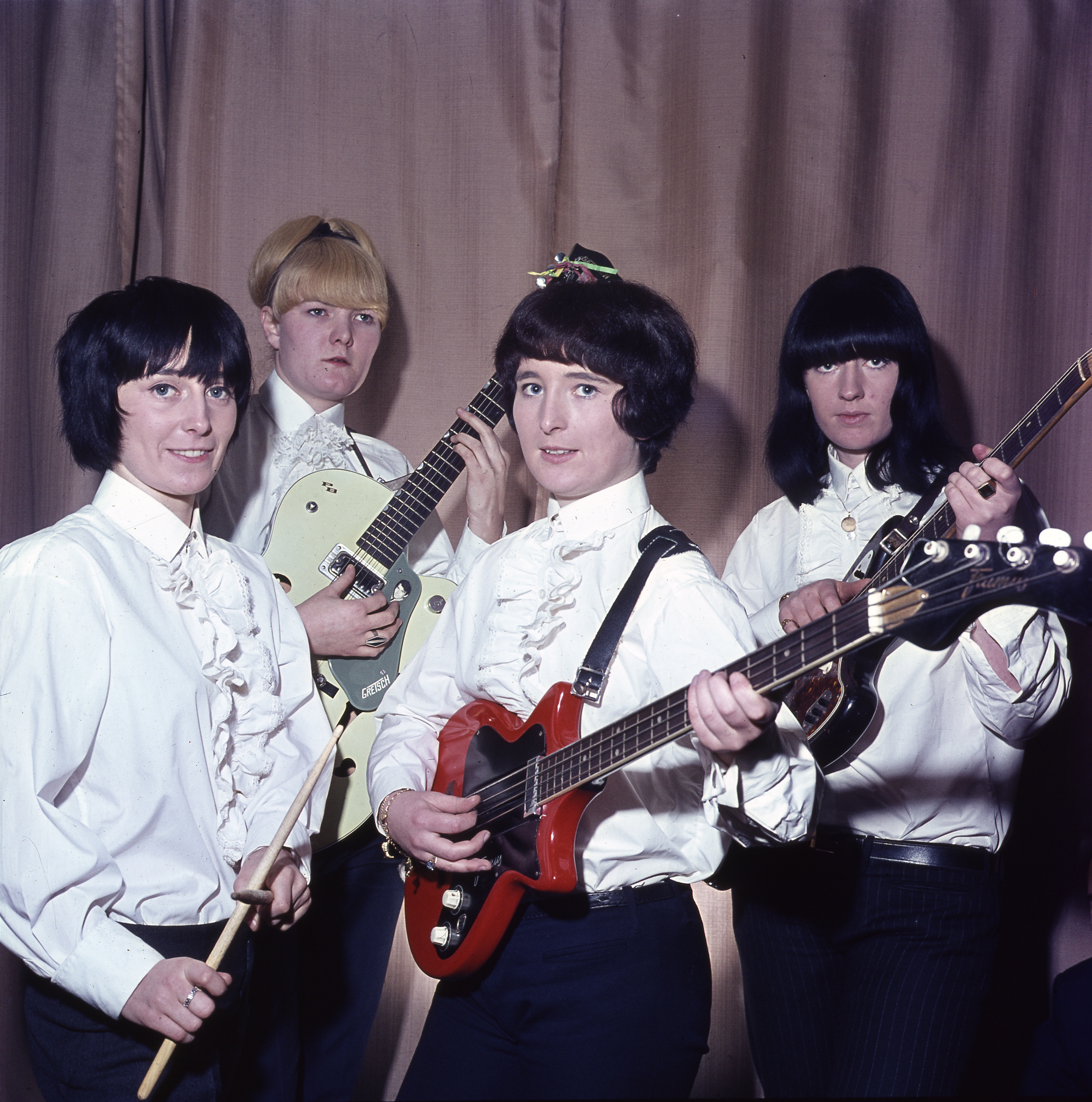
You've toured extensively in Europe, and you're also based in Hamburg now. How did the music scene there differ from what you had experienced till that point in the UK?
“Well, when we came over to Hamburg, we'd already started. Pam joined us, and Pam and Val started singing together, so we didn't have to just play instrumentals anymore. A lot of the tunes that we played when we first arrived in Hamburg, we only rehearsed on the train coming to Hamburg.
“So we'd never even heard them over an amplifier because two hours after we arrived in Hamburg, we were already on the stage at The Star-Club. We were playing things like Roll Over Beethoven and Boys and Roadrunner. So it was quite amazing to hear that we'd done a good job of it.
“We were supposed to stay at The Star-Club for six weeks, and then go back to England. But after we'd been there for a week, the owner, Manfred, made us a management offer. And he said, ‘I will book all over Europe, if you stay here, not just the Star-Club.’
“And that's what he did. He kept his word. And we traveled all over Europe, more or less, and even ended up going to Japan. So even though people said, 'Why didn't you take the offer of Brian Epstein? Or of Larry Page, The Kinks' manager?', we never regretted taking Manfred as our manager, because for six years, he really took care of us.”
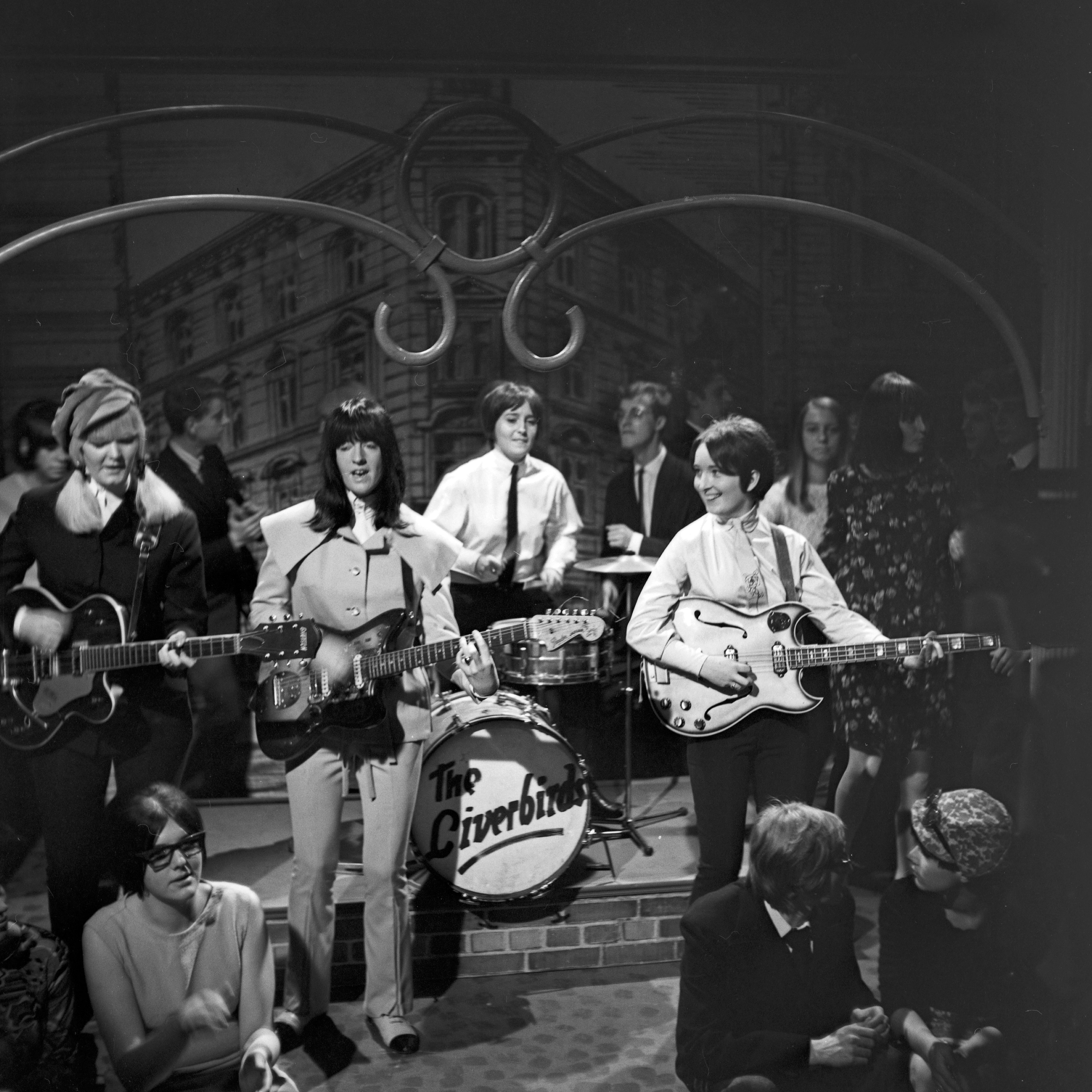
What were the best or most memorable gigs you played? Do any shows come to mind?
“Of course. In Berlin with Chuck Berry. I mean, Chuck Berry's manager said, ‘Nobody's allowed to play any Chuck Berry songs at the concert.’ But we had no choice. Otherwise, we couldn't have done the two 20-minute sets. So we started playing Roll Over Beethoven on our second set.
“Chuck Berry's manager ran onstage and tried to stop us. Valerie just pushed him off the stage and said ‘Get lost,’ but with other words, even stronger words, and we carried on playing and the audience was going absolutely crazy. They would scream and break the chairs and jump up and down and say, ‘Fantastic, girls, you show them,’ and yeah, that's one of the main concerts that stayed in memory.”
Chuck Berry's manager ran onstage and tried to stop us. Valerie just pushed him off the stage and said ‘Get lost’… we carried on playing and the audience was going absolutely crazy
“In them days, they didn't have arenas. It was more like what they call in Germany the Stadthalle, where they usually have about 7,000 to 10,000 people. We did a fantastic one in Vienna.
“And we did them all over the place – in Copenhagen, in Amsterdam, in Stockholm. We couldn't believe that people liked us that much. And even just the fact that they knew about us because, of course in them days, there was no social media. It was all down to word of mouth or publicity.”
Did you ever go back and play in the UK after you found success in mainland Europe?
“No. They make a great part in the play [The Liverbirds musical] when somebody says to us, ‘What did you ever regret?’ And then, this is on stage, one of the actors says, ‘Well, we do regret that we never came back to play in Liverpool.’ And then they say, ‘Well, this is a place. So let's change things. Let's do a final gig of The Liverbirds in Liverpool.’ And everybody really, really liked that part of it because that was like finally doing a farewell to Liverpool.”
It’s interesting that you were really embraced in mainland Europe but the UK kind of lagged behind...
“I met Charlie Watts about 10 years ago. We played with the Rolling Stones when we were still in England. And when he found out who I was, he said, ‘You know, Mary, Bill Wyman and I, we always said, we wonder what happened to them fantastic girls. We never heard of them again in England.’
“So you know, even people like The Stones, or later on The Kinks. They all really liked us and thought that we had something special. Which, to be quite honest, there's only Sylvia and I left. And we've only just realized ourselves now how special we were because we had no other girls who we could look up to and say, ‘Well, let's try and be like them.’ We had to be like ourselves.”
In terms of bass gear, what did you use throughout your career with The Liverbirds? Was it always the same bass that you bought in Liverpool?
“The first one was a Framus. And then shortly after we got to Hamburg and we were earning very good money, I went and bought my dream bass, which was a Gibson, a red Gibson, and unfortunately, that got robbed after four weeks.
“Then I bought a semi-acoustic Vox. When we went to Japan, Yamaha presented us all with a set of equipment as a present. And so I had a Yamaha bass, like a copy of the Fender bass. I kept that, I've still got it, but when we went into the studio in September [2023] to record our new album, and I got my bass out of the case, I thought to myself, ‘Oh my god, either this bass has gone bigger, or I've gone smaller. That looks so massive on me.’
“And I knew it was too heavy to have it on all day in the studio because we recorded a whole album. So I bought myself a new bass, a semi-acoustic Hofner, which is ideal for me because it's the right size. But because of old memories, I insisted on playing my old bass on a few of the songs as well.”
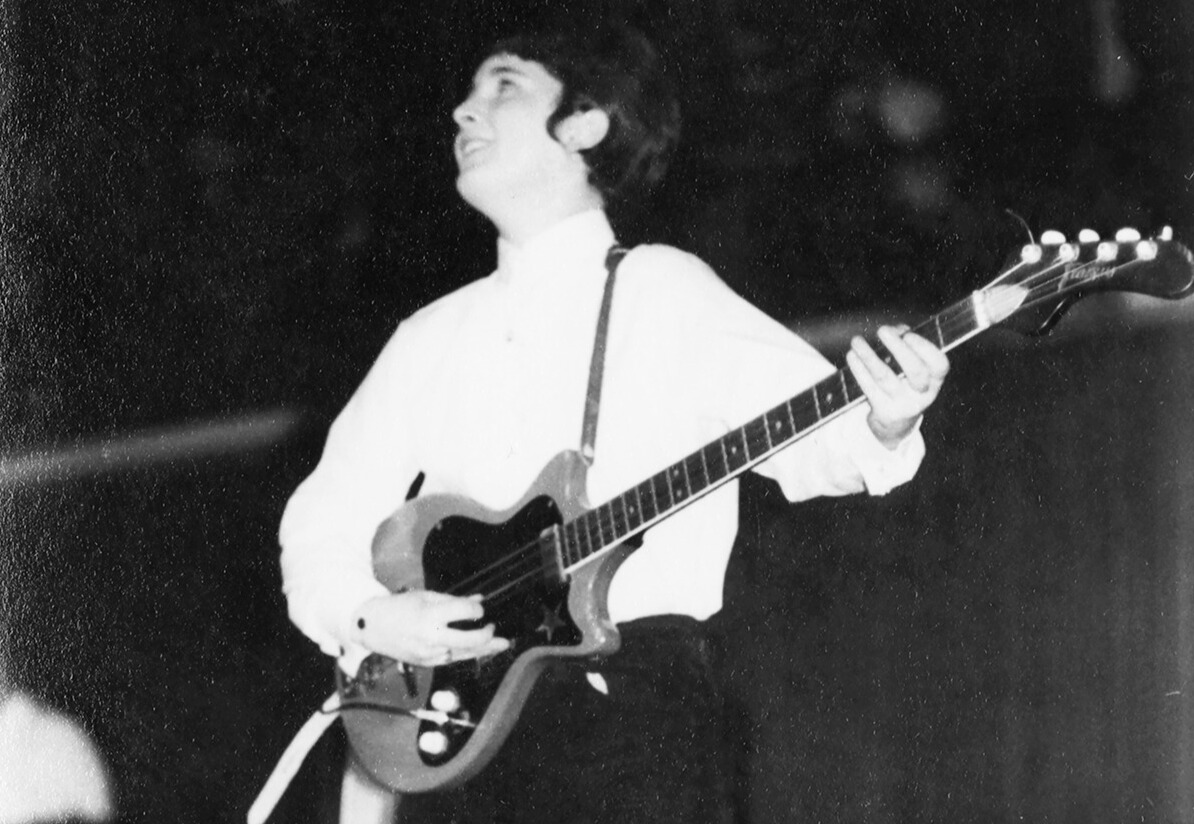
And what bass amps did you use during that time?
“It was an amp I bought in Liverpool. It was a WEM. And then, of course, when we got to Hamburg, we bought Vox amplifiers. When we got the Yamaha amplifiers as a present, of course, sometimes we used them, but mainly it was the Vox that had the sound that we wanted.”
You mentioned that you recently recorded a new album...
“Yeah. Sylvia and I, and the two girls from the musical that played Pam and Val in the musical, they came over to Hamburg, and a German record producer did a whole album with us. And at the moment he's gradually releasing singles on streaming and on the YouTube [channel] The Liverbirds.
“In the new songs, we wanted to keep the '60s feeling while being able to use the new possibilities that you have nowadays in a studio, so you can definitely hear them two things on it.”
So there are obviously more women in bands now, but you were one of the very first bands with women, in a very different time. Were there any particular hurdles you faced simply because you were women navigating the rock scene?
“We had some very near-misses when you think about it. There was the situation with Jimmy Savile [the British media personality and the subject of hundreds of sexual abuse allegations following his death in 2011]. Of course, nobody knew what he was up to at the time. We’d see him going to this hotel with school girls. We'd say to Jimmy, ‘What are the girls doing here?’ And he'd say, ‘I just give them a bit of pocket money to clean my room.’
“Then there was the thing with Gary Glitter here in Hamburg. When he was trying to get into my room in the hotel… there were a few things like that. But on the other hand, we always had good protection from, first of all, our manager, road manager, and male fans.
Young girls came up to us and said, ‘I'm gonna go home now and get a guitar'
“But it does surprise us, even though we're really, really happy there are more girls playing guitars or in groups now. But it's still not that many when you think about it.
“That's what we realized when the musical was on in Liverpool: how many young girls came up to us, when we were signing autographs at the end and said, ‘I'm gonna go home now and get a guitar. I've never even realized it. But it's right. We girls have to start doing this.’
“And some of them have [actually started a band], because when Sylvia and I were promoting our book in Liverpool in March, some girls did come up and say, ‘We are a group now. We got together after your show.’”
Janelle is a staff writer at GuitarWorld.com. After a long stint in classical music, Janelle discovered the joys of playing guitar in dingy venues at the age of 13 and has never looked back. Janelle has written extensively about the intersection of music and technology, and how this is shaping the future of the music industry. She also had the pleasure of interviewing Dream Wife, K.Flay, Yīn Yīn, and Black Honey, among others. When she's not writing, you'll find her creating layers of delicious audio lasagna with her art-rock/psych-punk band ĠENN.



